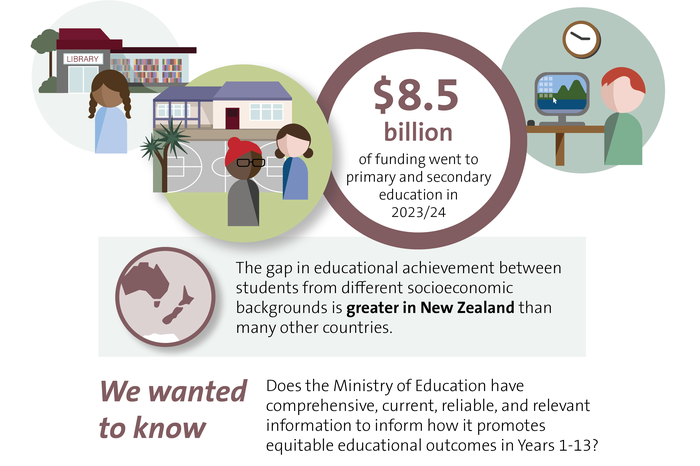Ministry of Education: Promoting equitable educational outcomes

Summary of our report
New Zealand invests significant public resources into primary and secondary education. A well-educated population has enormous personal, societal, and economic benefits. However, studies consistently highlight that there are wide variations in student achievement in New Zealand.
The Ministry needs to work with schools and others in the education system to develop a plan for collecting more in-depth information about where inequities are occurring and what factors affect student achievement and progress.
We have made five recommendations to help improve the information the Ministry collects and its analysis of that information. Addressing these recommendations will help the Ministry to better support schools to meet the needs of all their students.
What's in this report
Collaboration to identify and address inequity
We describe how schools are responsible for helping students to reach their potential and the Ministry is responsible for providing schools with resources and guidance. We also discuss the role of other organisations in supporting equitable educational outcomes and the importance of collaboration.
The need for better information
We discuss how the Ministry does not have comprehensive information about student achievement or progress, especially for Years 1-10 and for Māori-medium education, and how it needs to work with others to address the gaps in its information.
Improving how the Ministry uses its information
We discuss how the Ministry needs a more detailed understanding of inequity, a more systematic approach to evaluating its initiatives, and to better use existing information to target and improve its initiatives.
